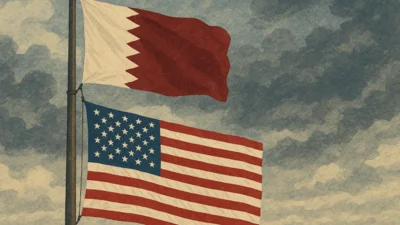Washington D.C. - Today, Rep. Carolyn B. Maloney, the Chairwoman of the Committee on Oversight and Reform, held a full committee hybrid hearing examining the pricing and business practices of AbbVie Inc. Just before the hearing, Chairwoman Maloney released a staff report with new documents and details about AbbVie Inc., which sells the anti-inflammatory drug Humira and the cancer drug Imbruvica. AbbVie has repeatedly raised the prices of these two blockbuster drugs.
“The Committee’s investigation uncovered evidence that AbbVie has exploited the U.S. patent system and engaged in anticompetitive practices to extend its monopoly pricing," said Chairwoman Maloney. “Based on these findings, Judiciary Committee Chair Nadler, Judiciary Antitrust Subcommittee Chairman Cicilline, and I sent a letter to the FTC today asking for a formal inquiry into whether AbbVie’s anticompetitive practices violated the law. We want drug companies to be successful, but abusive drug pricing and anticompetitive practices mean these medications are out of reach for far too many Americans."
In addition to testimony from AbbVie Inc.’s CEO Richard Gonzalez, the Committee also heard testimony from experts Dr. Aaron Kesselheim, Professor of Medicine at Harvard Medical School; Tahir Amin, Co-Founder and Co-Executive Director of Initiative for Medicines, Access, and Knowledge; and Craig Garthwaite, Herman Smith Research Professor in Hospital and Health Services at Northwestern University’s Kellogg School of Management. Patients directly impacted by the abusive pricing practices also provided video testimony.
AbbVie’s CEO confirmed key findings from the Committee’s investigation, acknowledging that the company’s pricing practices and efforts to suppress competition for Humira and Imbruvica have led to higher prices rather than significant innovative breakthroughs.
* When pressed by Rep. Ayanna Pressley about whether AbbVie’s suppression of competition through 2023 “means the government has to pay more and patients have to make greater sacrifices," Mr. Gonzalez replied, “Yes." Rep. Pressley noted that “AbbVie’s own documents estimate that the delay will cost the U.S. health care system at least an additional $19 billion and for patients it will cost them their physical, psychological, and financial health."
* Mr. Gonzalez confirmed that AbbVie’s price increases on Imbruvica since 2013 have not corresponded to improvements in the drug itself. When asked by Rep. Katie Porter whether the drug has fewer side effects today, Mr. Gonzalez testified: “No. It has the same side effect profile." When asked if patients need less of the drug today than they did when it cost approximately half as much in 2013, Mr. Gonzalez replied, “No." When asked by Rep. Bush whether Imbruvica’s efficacy has dramatically improved each of the nine times AbbVie has raised its price since 2013, Mr. Gonzalez replied, “The drug is basically the same drug."
* Mr. Gonzalez acknowledged that AbbVie did not need the Orphan Drug Act’s incentives to conduct research on the use of Humira to treat a skin condition called Hidradenitis Suppurativa (H-S), but AbbVie took advantage of the incentives anyway. When Rep. Jamie Raskin asked: “You determined that the H-S patient market would be profitable even without Orphan Drug Act incentives. Isn’t that right?" Mr. Gonzalez responded, “That’s correct."
* Although Mr. Gonzalez asserted that AbbVie was focused on innovation, in response to questions from Rep. Ro Khanna, he could not identify the Nobel-laureate who had invented Humira, and he could not explain why AbbVie’s more recent follow-up patents on the drug were “novel and nonobvious."
Mr. Gonzalez confirmed the Committee’s investigative finding that AbbVie raised prices in the United States while lowering them abroad, explaining that this was because other countries negotiated lower prices on behalf of their citizens.
* In response to questioning from Rep. Cori Bush about whether there is any significant difference between the Humira sold in the United States and the Humira sold at much lower prices in other countries, AbbVie CEO Richard Gonzalez acknowledged, “There is not a significant difference. … The general drug is the same."
* Mr. Gonzalez stated that governments in other countries are able to negotiate lower prices for their patients, without threatening access to medications. In response to questions from Rep. Cori Bush, Mr. Gonzalez testified: “As a manufacturer, you only have two choices. You either accept that price or you deny the population of that country the benefits of your medicine. And that’s an impossible choice. Can you imagine a cancer drug not providing the population of a country that drug because you don’t like the price?"
* Patent expert Tahir Amin’s testimony illustrated how AbbVie has been able to abuse the permissiveness of the U.S. patent system to suppress the kind of biosimilar competition for Humira that has lowered prices abroad, noting that “a number of the EU patents were actually revoked or withdrawn because they weren’t actually up to strength."
Members expressed bipartisan outrage after internal documents revealed that AbbVie originally projected it would face competition from lower-priced biosimilar versions of Humira in 2017, but employed legally questionable tactics to delay American patients access to biosimilars until 2023.
* Mr. Gonzalez confirmed that AbbVie dedicated a significant portion of its research budget to extending its monopoly for Humira. He testified: “We constantly look for ways that we can innovate a product to be able to protect and grow its position." When Rep. Peter Welch asked whether this means AbbVie works to extend its patent protections to maintain pricing power through the monopoly a patent confers, Mr. Gonzalez replied, “Yes, it can result in that."
* In response to questioning from Rep. Jackie Speier about AbbVie’s abuse of the U.S. patent system to protect its market exclusivity, Mr. Amin testified, “They don’t need all these patents, but it’s a great way to keep competition at bay." He added: “The idea that we are going to stifle innovation is wrong. My main call is that we should actually raise the bar for what it takes to get patents and we have to improve examinations on those patents."
* Mr. Amin testified: “[U]nfortunately the U.S. patent system over-provides exclusivity in the sense that companies can easily get more patents and keep filing patents well into a drug’s life. This is why we have settlement agreements and by some litigations, 74 patents were thrown at competitors and they couldn’t litigate through it."
* Members expressed bipartisan outrage over AbbVie’s patent abuses. While Mr. Gonzalez sought to defend AbbVie against claims that the company had filed “frivolous patents," Rep. Clay Higgins interjected saying: “Yeah, they’re frivolous. They’re frivolous. Making minute changes to your product and to extend your protection periods-we don’t appreciate it."
H.R. 3 would finally allow Medicare to directly negotiate for lower drug prices. Congress must pass this commonsense reform and others so that patients and families can afford their prescriptions.
* In response to questioning from Rep. John Sarbanes about the impact of price negotiation, Dr. Kesselheim testified: “What H.R. 3 will do is it will give the U.S., just like other countries do, the ability to negotiate upfront and say, well, this drug is worth us paying a high price, and this drug is not worth us paying a high price. That is what other countries do, and that is how they are able to lower prices on the drugs that they pay for, and that is not what we do."
* After revealing that Medicare paid $12.5 billion for Humira and Imbruvica between 2014 and 2018, Chairwoman Maloney commented: “No wonder AbbVie and the other drug makers target the U.S. for price increases. They know that unlike the rest of the world, our Medicare program is prohibited from negotiating directly for lower prices. This data demonstrates clearly why Congress must pass H.R. 3 to grant Medicare the power to negotiate lower drug prices. We must pass this bill this year."
Today’s expert witnesses confirmed what patients in this country have known for a long time-drug prices in the United States are simply unfair, unsustainable, and just plain wrong. The Committee’s two-year investigation found that AbbVie’s actions are among the world’s most egregious examples of drug pricing abuse.







